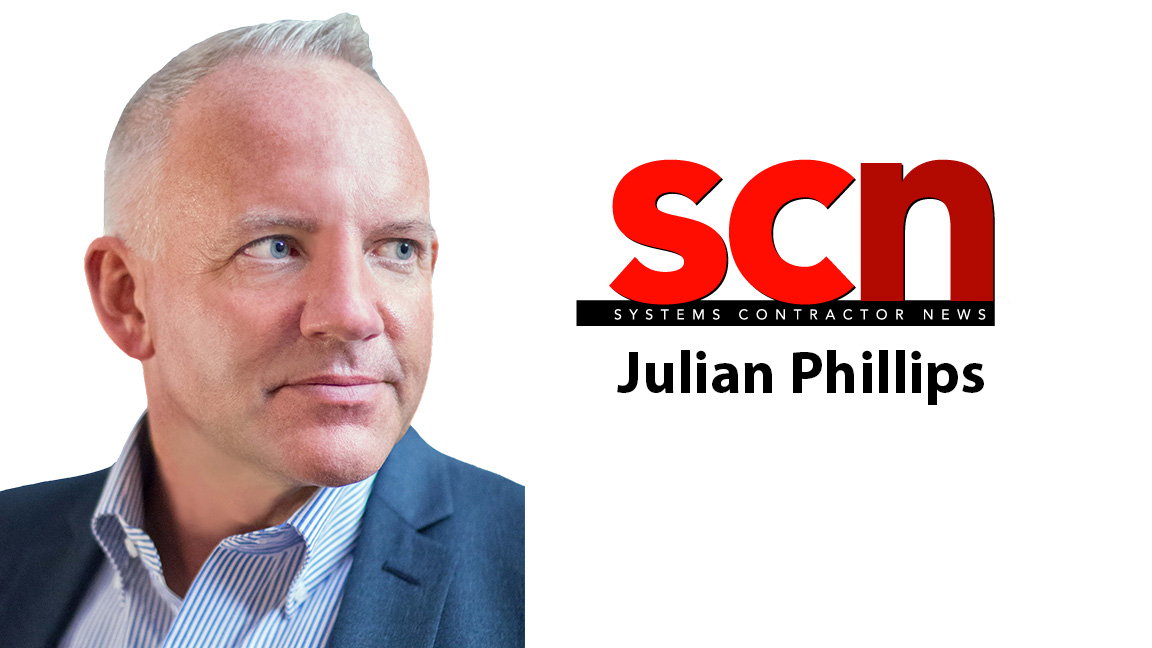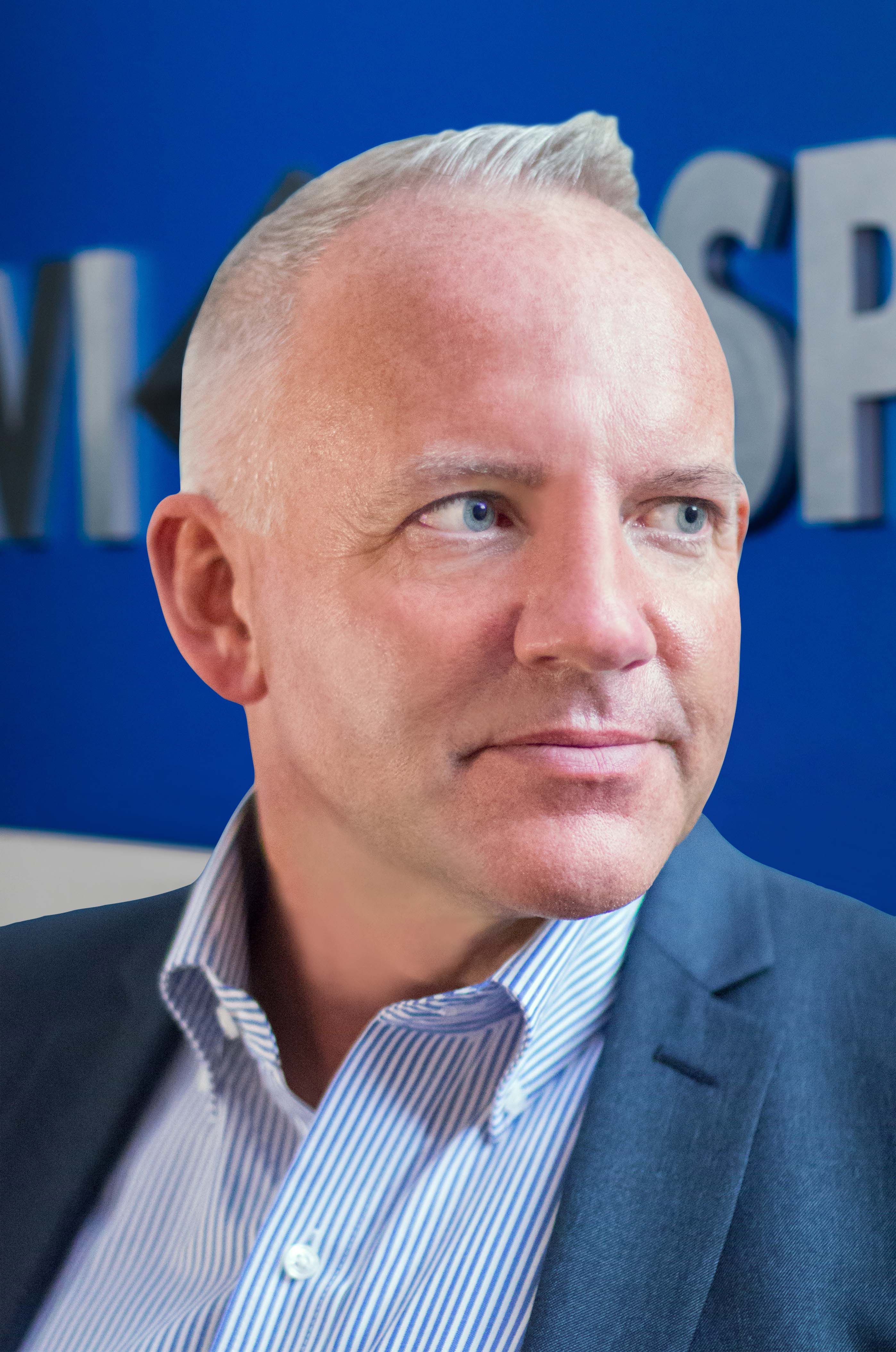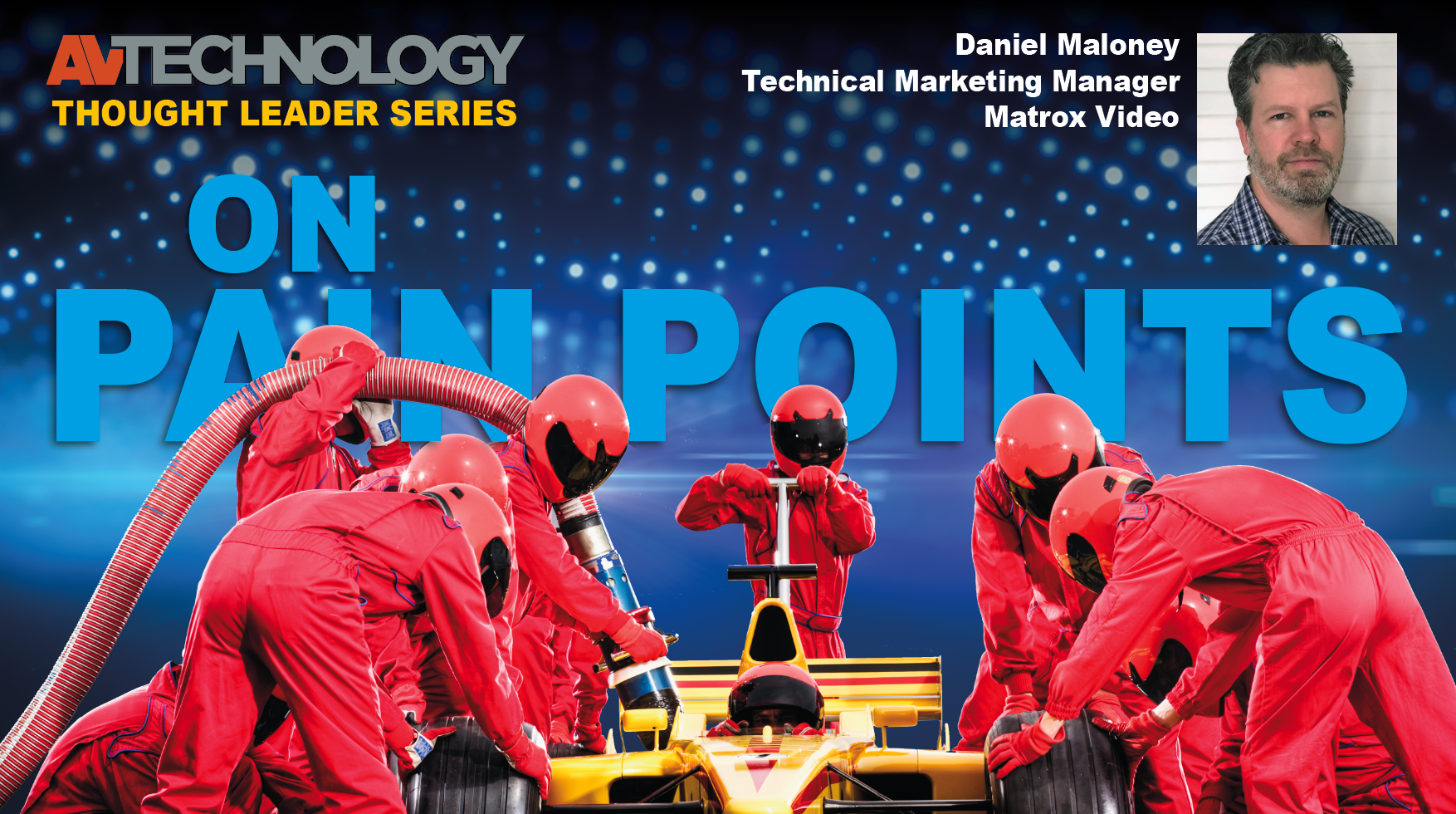Blueprint for Success: Learn from the Past, Shape Your Future
It's time to change your approach to Pro AV.

A daily selection of features, industry news, and analysis for AV/IT professionals. Sign up below.
You are now subscribed
Your newsletter sign-up was successful
Renaissance man Leonardo Davinci famously quipped, “It had long since come to my attention that people of accomplishment rarely sat back and let things happen to them. They went out and happened to things.”
It is true that a lot of “stuff” has happened to us over the last three years—global pandemic, political strife, war in Europe, global supply chain meltdown, and the ever-increasing evidence of the effects of climate change. Our mistake would be to believe that we are mere pawns in a giant game of chess and the victims of unseen enemies. Let’s not take that path, because if we can learn from our past, we can shape our future. We are all actors, and we must all play our part.
[Blueprint for Success: Carpe Diem]
Let’s rewind a century and learn from what happened in the aftermath of the last global pandemic, the tragically misnamed “Spanish Flu” that came off the back of the ghastly Great War in 1918. The 1920s became an era of emancipation, experimentation, exploration, and invention; from the women’s suffrage movement, the discovery of the North Pole, the use of insulin to treat diabetes, and the world’s first television, it seemed that old rules were being broken and boundaries were stretched beyond the believable. It took the Wall Steet crash and the subsequent Great Depression to put an end to the Roaring '20s, but by then, we had learned that collective human endeavor could achieve far more than the “grand designs” of the elite.
Here we are then, it’s 2023, and the future of the Pro AV industry is in our hands. What are the lessons we can learn, and what can we do to shape our future? Well, here are five thoughts for the global AV community, and hopefully they will provide resonance from whatever your background or the role you currently play.
Rip Up the Rule Book
There is a reason why we did things the way we did, and usually always for the right reasons, but now is the time to rethink and reimagine—whether it’s designing conference rooms without tables or replacing redundant hardware with software in the cloud. Virtually every single scenario that demanded AV standards or UCC reference designs has changed and, in many cases, dramatically. Now is the time for blank sheets of paper and blue-sky thinking. Be brave and use tools like virtual reality to experiment and fast track ideas.
Convert from Linear to Circular Design
The Pro AV industry emerged within a linear design process of real estate developers handing off to architects, who passed on to facilities managers and general contractors, who engaged with IT departments and consultants, who bid out to integrators, which specified manufacturer’s products and employed labor to build, operate, and support for end users. This may be how we built automobiles in the 1980s, but it is too siloed, costly, time-consuming, and redundant for the unique challenges we face today.
A daily selection of features, industry news, and analysis for AV/IT professionals. Sign up below.
Instead, we need to be “circular,” with human experience in the center and all stakeholders working together at the same time in continuously learning, rapidly adapting, and improving teams. And on the subject of circularity, we need to address sustainability—not just with the recycling of products and components, but by eliminating wasted time and not recycling old ideas.
Transform Your Business Model
It is highly likely that if your designs, standards, and processes are outdated, then your business model will be, too. This applies as much to the “check producing” end user community as it does to service providers.
The linear design process encourages transactional commercial behaviors, with everyone having their assigned role in sequence and “best value” supposedly assured through market competition at a singular event, like a bid. But the circular design process is not best served through a transactional mindset. Circular design demands partnership, collaboration, shared costs, and rewards—everyone in the endeavor together and everyone in it for the long run.
[Viewpoint: This Is How It Is Now]
Much greater success, productivity, and profitability will be assured when we learn to trust each other, share our knowledge, ideas, and skills. To this end, the measurement of customer/vendor relationships must transition from deals to lifetime value.
Transform Your Organization, Too
Just like buses, none come along for ages and then three arrive all at the same time. If transforming designs and business models are not enough, we also need to look long and hard at organizational designs. Is your current company, department, or team organized in the right way to make all these changes, address customer needs, and drive success into the future?
[How Fast Is Pro AV's Carousel of Progress?]
If you're not sure where to start, the unified global response to COVID-19 should provide a big clue. Overnight, we experimented quickly and adapted fast. Not only did we shift from our offices and schools to our homes, but we also learned how to distribute work and provided greater flexibility and life balance.
Our biggest issue with “return to office” is that the workforce has become agile and adaptable, and our organizations have stayed virtually the same. Organizations based around purpose, not function, are most likely to succeed.
Delete the Fear of Failure
Finally, in this brave new world, we all need to be explorers and creators, not followers and copiers. We need to try new things and test new ideas. Not all of it is going to work, and some of it could be downright horrible. But if we persist with this dangerously outdated notion of celebrating the A+ student who simply learns how to repeat received opinion rather than the F student who tries something totally radical and fails, then we persist with a culture of mediocrity, eventual decline, and irrelevance.
The "Soaring 2020s" will be defined by those who fearlessly shape the future, and who don’t sit back and wait for things to happen to them but go out and happen to things. Now, over to you.
Julian Phillips is the managing director of XTG, the AVI-SPL Experience Technology Group, and was named a member of the SCN Hall of Fame in 2019.

